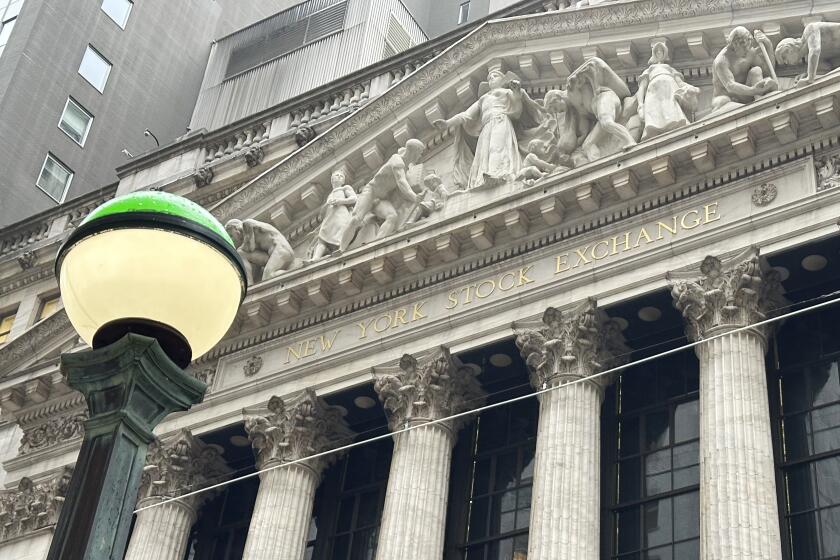L.A.’s Homeboy Industries lays off most employees
Homeboy Industries, the Los Angeles institution whose mission for more than 20 years has been to turn jobs into a recipe for saving the lives of gang members, laid off most of its employees Thursday because of crushing financial problems.
Father Gregory Boyle, who started Homeboy Industries in Boyle Heights during the height of the city’s gang wars, said 300 people were laid off, including all senior staff and administrators. Boyle said he has stopped taking a paycheck.
“We let people know so they could apply for unemployment, which I’m going to do as well,” he said.
Inside the organization’s headquarters at Alameda and Bruno streets in Chinatown, employees — many of them former gang members — took turns embracing and consoling Boyle. Young men crowded around him and promised to come back even without pay.
“We love you, G. We’ll be here tomorrow,” said one. The 55-year-old priest called it a “Frank Capra moment,” but he was noticeably dejected.
For two decades, Homeboy Industries has offered counseling, removed tattoos and helped gang members find jobs. Its motto: “Nothing stops a bullet like a job.”
But Boyle said no amount of campaigning and fundraising could make up the roughly $5 million the organization needed to operate. He said pleas for donations had resulted in some help, but not nearly enough.
He acknowledged that the people Homeboy Industries helps have always been a hard sell, and more so when the economy is struggling.
“If these were puppies or little kids, we wouldn’t be in this trouble,” he said. “But they’re tattooed gang members with records. So I think a lot of people love this place, but not the folks who can write the big checks, the ‘Save the Hollywood sign’ check.”
The only employees not laid off were more than 100 who work in the organization’s businesses, including its store, bakery and Homegirl Cafe. Boyle said that for the moment, the social services offered would continue, precariously, only because employees said they would keep coming. Eventually, like others left in the lurch by the worst economic downturn since the 1930s, many would need to find work elsewhere.
“We cobbled together payrolls since November. But it was not enough to save us,” Boyle said. “Hope has left the building a little bit. Miracles happen. They just haven’t happened for us lately.”
Still, the priest emphasized to his staff that this was not the end for Homeboy Industries.
Boyle acknowledged some blunders. When he embarked on a campaign to raise money to buy the building on Alameda Street, the organization did not factor in enough money to pay for operations that serve more than 12,000 gang members and former gang members a year, he said.
The $5 million “should have been included in our capital campaign, and it wasn’t,” Boyle said. “And that was our error.... We sort of forgot that we were going to put a program in this place.”
Homeboy Industries probably would have weathered that mistake, but then the recession struck — and the organization became busier.
“The recession happened, and everyone and his mother, every ZIP Code that has a gang had people coming here from all over the county,” Boyle said.
Homeboy Industries has gotten plaudits from influential politicians, celebrities and, increasingly, high-ranking LAPD officials — though over the years, rank-and-file officers have been critical, calling Boyle an apologist for gangbangers who don’t always change.
But Boyle has become an L.A. icon because of his work, with some supporters saying he should be considered for the Nobel Peace Prize.
Hector Verdugo, 35, a former gang member from Boyle Heights who became a top administrator at Homeboy Industries, said it was only natural that the priest’s wards would try to comfort him when they saw him crying Thursday. Together, they prayed in the lobby and vowed to return as long as they could, even without pay.
“Everyone just said, ‘Thank you, G, for bringing us this far,’ ” said Verdugo, a father of three. “But this isn’t the end. Like Father G said, this is just a pause.”







